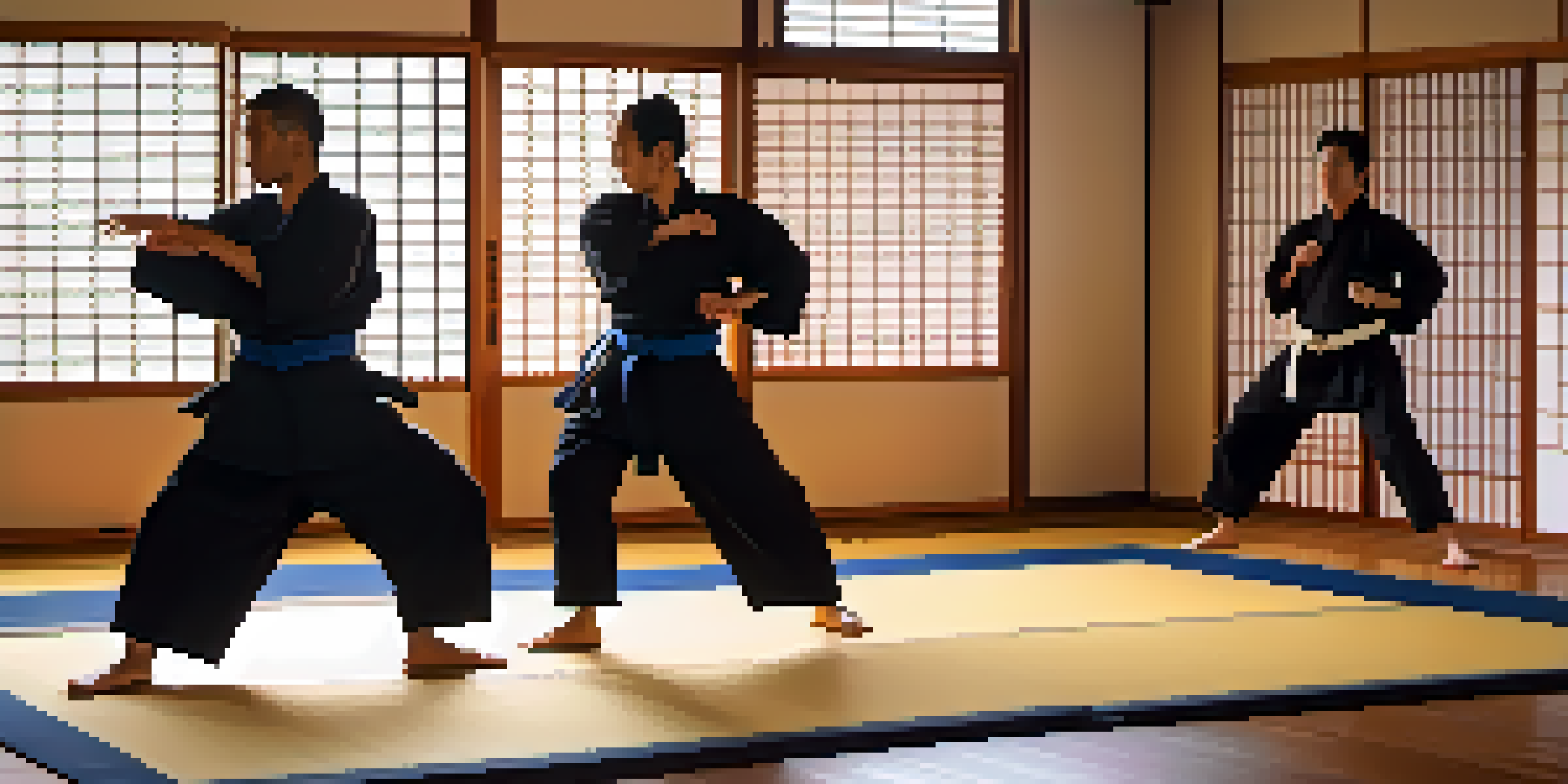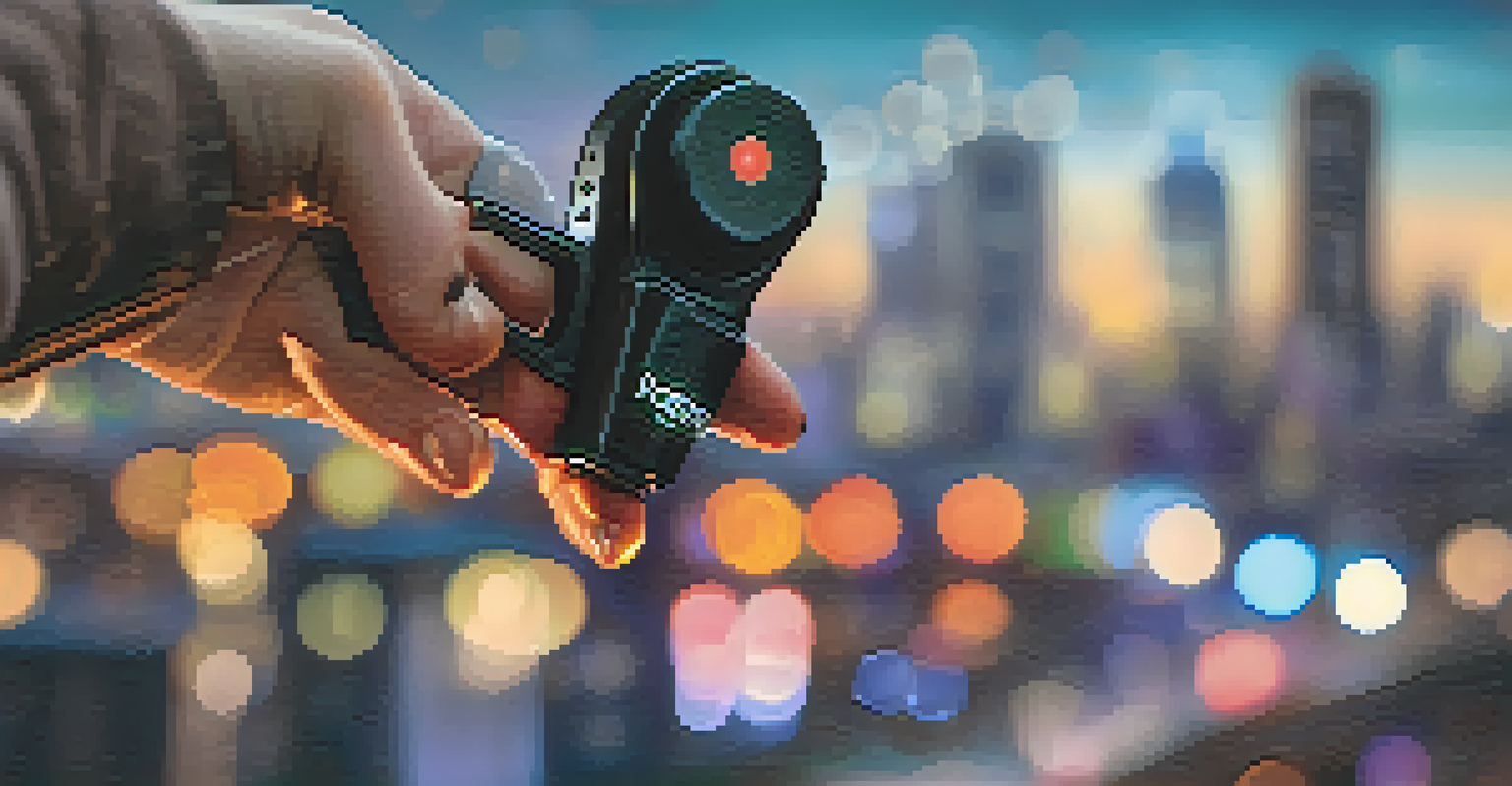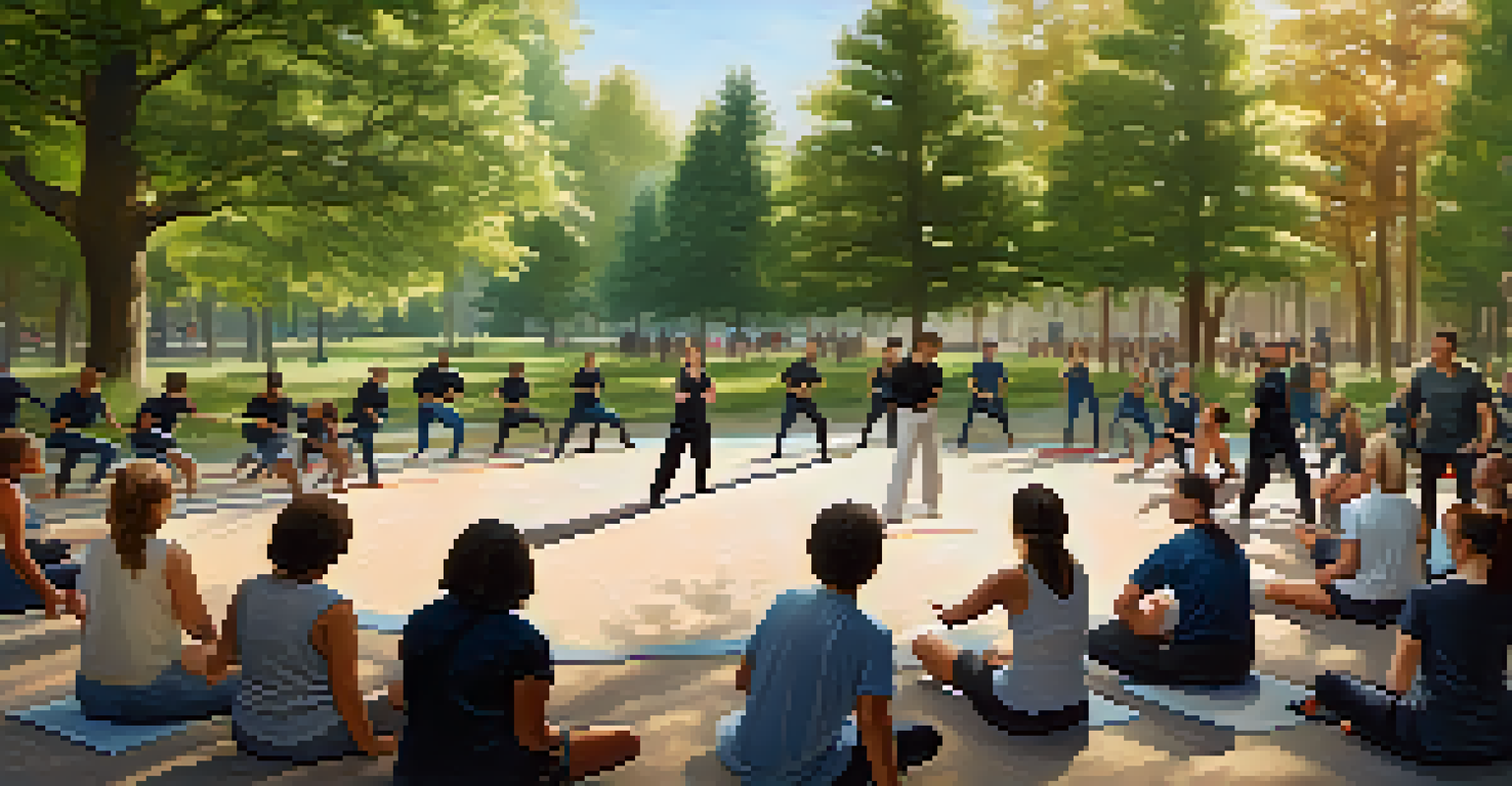Historical Perspectives on Self Defense and Social Norms

The Evolution of Self Defense: A Historical Overview
Self-defense has been a critical aspect of human society since ancient times. In early civilizations, individuals often relied on their physical prowess or weapons to protect themselves from threats. These practices were not just personal but were also tied to community safety, showcasing a collective understanding of self-preservation.
The best defense is a good offense.
Over time, the concept of self-defense evolved, influenced by legal systems and cultural norms. For instance, in medieval Europe, the right to defend oneself was often codified in local laws, which recognized the need for individuals to protect their property and lives. This historical backdrop laid the groundwork for modern interpretations of self-defense.
Today, self-defense is viewed through various lenses, including legal, ethical, and psychological. The evolution of laws regarding self-defense reflects changing societal values and norms, highlighting how history shapes our understanding of personal safety and responsibility.
Cultural Influences on Self Defense Practices
Different cultures have unique approaches to self-defense, shaped by their histories and societal values. In some societies, martial arts are not just about physical defense but are also deeply rooted in philosophy and discipline. This cultural context often informs how self-defense is perceived and practiced.

For example, in Japan, traditional martial arts like Judo and Aikido emphasize self-control and respect for others, reflecting broader social norms. These practices showcase that self-defense is not merely about aggression but also about understanding one's limits and acting responsibly.
Self-Defense's Historical Context
The evolution of self-defense reflects changing societal values and legal interpretations throughout history.
Conversely, in many Western societies, self-defense is often linked to individual rights and personal freedom. This cultural perspective can lead to a more aggressive interpretation of self-defense, where individuals feel justified in using force to protect themselves. Understanding these cultural nuances helps us appreciate the diverse ways self-defense is practiced around the world.
Legal Frameworks Surrounding Self Defense
The legal definition of self-defense varies significantly across different jurisdictions. In many countries, the law recognizes the right to defend oneself against imminent threats, but the extent of this right can differ. For instance, some places have 'stand your ground' laws, while others require a duty to retreat before using force.
Self-defense is not just about physical strength; it's about understanding how to protect yourself mentally and emotionally as well.
These legal frameworks are shaped by historical events and societal attitudes towards violence. In the United States, the rise of gun culture has influenced self-defense laws, leading to debates about personal safety versus public safety. This illustrates how legal systems adapt to the complex interplay between individual rights and social norms.
Moreover, legal interpretations of self-defense often reflect broader societal values, including gender and race. Cases involving self-defense can reveal underlying biases in the legal system, highlighting the need for ongoing discussions about justice and equality in self-defense scenarios.
Self Defense and Gender Dynamics
Gender plays a significant role in discussions about self-defense, influencing both perceptions and practices. Historically, women have often been viewed as vulnerable, leading to the development of self-defense programs specifically tailored for them. These programs aim to empower women, teaching them skills to protect themselves in threatening situations.
However, the societal implications of self-defense can vary by gender. Women's self-defense is often framed within a context of victimization, while men's self-defense may emphasize strength and aggression. This difference in narrative can impact how individuals perceive their right to defend themselves and the methods they choose to employ.
Cultural Variations in Practices
Different cultures shape unique self-defense practices, which are influenced by their historical and philosophical backgrounds.
As society progresses, there's a growing recognition of the importance of inclusive self-defense training that addresses the unique challenges faced by all genders. This shift reflects a broader understanding that self-defense should be accessible to everyone, promoting safety and empowerment across the spectrum.
The Role of Technology in Modern Self Defense
Technology has dramatically changed the landscape of self-defense in recent years. From personal safety apps that alert friends or authorities to wearable devices designed to deter attackers, individuals now have more resources at their disposal than ever before. This technological advancement reflects a proactive approach to personal safety.
Moreover, social media plays a crucial role in raising awareness about self-defense techniques and legal rights. Online platforms allow for the sharing of experiences and resources, creating communities focused on empowerment and education. This connectivity fosters a culture where individuals can learn from one another's experiences and strategies.
However, the reliance on technology also raises questions about its effectiveness. While gadgets can enhance personal safety, they cannot replace the fundamental skills and awareness needed for self-defense. Thus, a balanced approach that incorporates both traditional skills and modern technology is essential for effective self-defense.
The Psychological Aspects of Self Defense
Understanding the psychological dimensions of self-defense is vital for effective practice. Fear and anxiety are common reactions to perceived threats, which can cloud judgment and decision-making. Training in self-defense can help individuals build confidence, teaching them not just physical skills but also mental resilience.
Additionally, the aftermath of a self-defense encounter can be psychologically taxing. Individuals may experience trauma, guilt, or confusion about their actions, especially if the situation escalates beyond their control. Recognizing these emotional responses is crucial for recovery and can inform future training and preparedness.
Tech and Psychology in Self Defense
Modern self-defense incorporates technology and psychological preparedness, emphasizing a holistic approach to personal safety.
Therefore, effective self-defense training should encompass both physical skills and psychological preparedness, helping individuals navigate the complexities of real-life confrontations. This holistic approach fosters a deeper understanding of self-defense as not just a physical act, but a comprehensive response to threats.
Social Norms and the Future of Self Defense
As society continues to evolve, so too will the norms surrounding self-defense. The rising awareness of personal safety issues, including harassment and violence, is changing how individuals view their right to protect themselves. This shift is leading to more open discussions about self-defense and its implications in various contexts.
Moreover, the growing emphasis on consent and personal autonomy is influencing self-defense practices. There's a push towards understanding and respecting boundaries, which is vital in teaching effective self-defense techniques. This evolution reflects a broader societal commitment to fostering a culture of respect and safety.

Looking ahead, we can anticipate a future where self-defense training is more inclusive and accessible. As conversations around self-defense and social norms continue to evolve, individuals will be better equipped to navigate their safety and empowerment in an increasingly complex world.